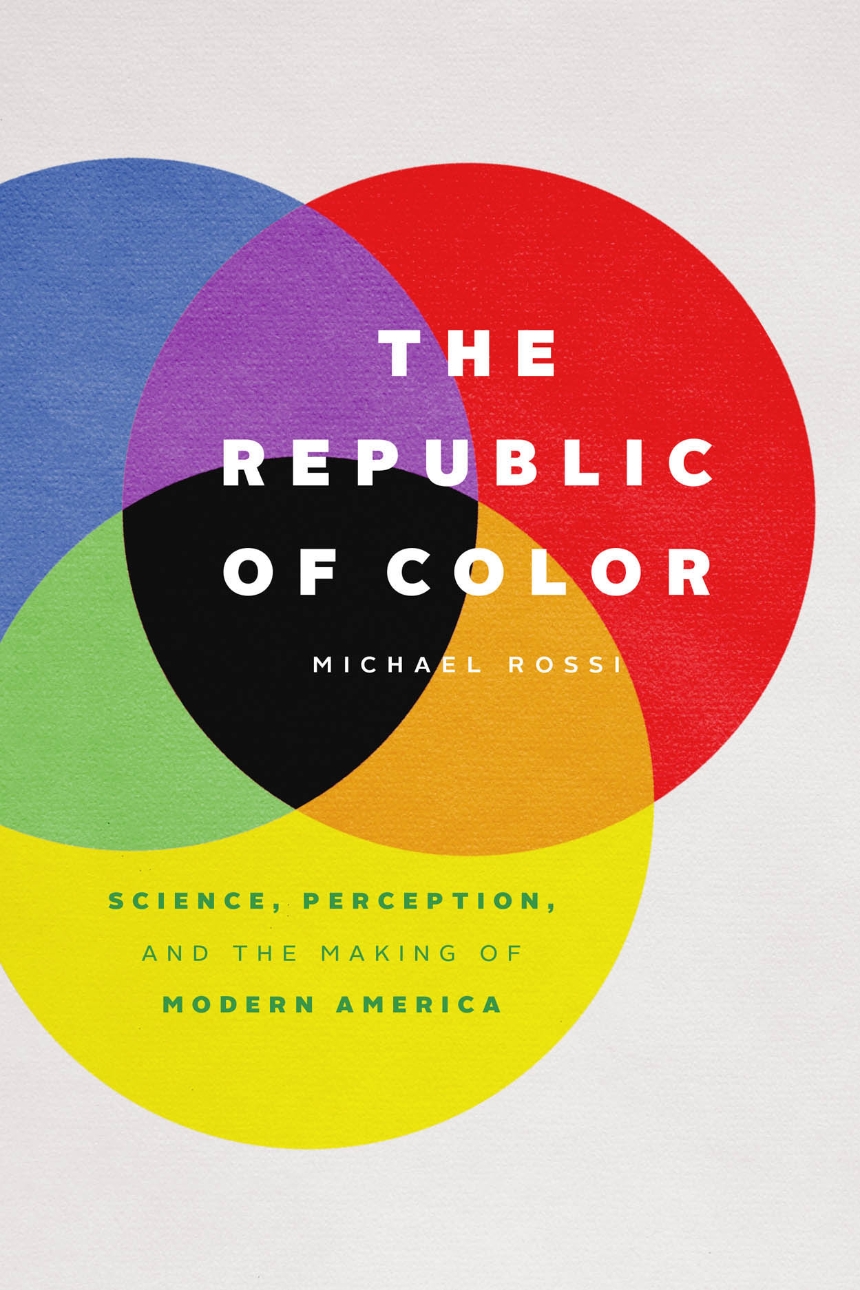The Republic of Color
Science, Perception, and the Making of Modern America
9780226651729
9780226651866
The Republic of Color
Science, Perception, and the Making of Modern America
Publication supported by the Bevington Fund
The Republic of Color delves deep into the history of color science in the United States to unearth its origins and examine the scope of its influence on the industrial transformation of turn-of-the-century America.
For a nation in the grip of profound economic, cultural, and demographic crises, the standardization of color became a means of social reform—a way of sculpting the American population into one more amenable to the needs of the emerging industrial order. Delineating color was also a way to characterize the vagaries of human nature, and to create ideal structures through which those humans would act in a newly modern American republic. Michael Rossi’s compelling history goes far beyond the culture of the visual to show readers how the control and regulation of color shaped the social contours of modern America—and redefined the way we see the world.
For a nation in the grip of profound economic, cultural, and demographic crises, the standardization of color became a means of social reform—a way of sculpting the American population into one more amenable to the needs of the emerging industrial order. Delineating color was also a way to characterize the vagaries of human nature, and to create ideal structures through which those humans would act in a newly modern American republic. Michael Rossi’s compelling history goes far beyond the culture of the visual to show readers how the control and regulation of color shaped the social contours of modern America—and redefined the way we see the world.
320 pages | 11 color plates, 6 halftones, 11 line drawings | 6 x 9 | © 2019
Art: Art--General Studies
History: American History, History of Technology
Reviews
Table of Contents
Introduction / Cloven Tongues of Fire
Chapter One / Modern Chromatics: Ogden Rood and the Wrong-Workings of the Eye
Chapter Two / From Chemistry to Phanerochemistry: Charles Sanders Peirce and the Semiotic of Color
Chapter Three / Pathologies of Perception: Benjamin Joy Jeffries and the Invention of Color Blindness
Chapter Four / Colors and Cultures: Evolution, Biology, and Society
Chapter Five / The Pragmatic Physiology of Color Vision: Christine Ladd-Franklin and the “Evolutionary Theory” of Color
Chapter Six / Small Lies for Big Truths: Standards, Values, and Color Terms
Chapter Seven / The Logical and the Genetic: Bodies, Work, and Formal Color Notations
Conclusion / Talking about Color
Chapter One / Modern Chromatics: Ogden Rood and the Wrong-Workings of the Eye
Chapter Two / From Chemistry to Phanerochemistry: Charles Sanders Peirce and the Semiotic of Color
Chapter Three / Pathologies of Perception: Benjamin Joy Jeffries and the Invention of Color Blindness
Chapter Four / Colors and Cultures: Evolution, Biology, and Society
Chapter Five / The Pragmatic Physiology of Color Vision: Christine Ladd-Franklin and the “Evolutionary Theory” of Color
Chapter Six / Small Lies for Big Truths: Standards, Values, and Color Terms
Chapter Seven / The Logical and the Genetic: Bodies, Work, and Formal Color Notations
Conclusion / Talking about Color
Acknowledgments
Bibliography
Index
Bibliography
Index
